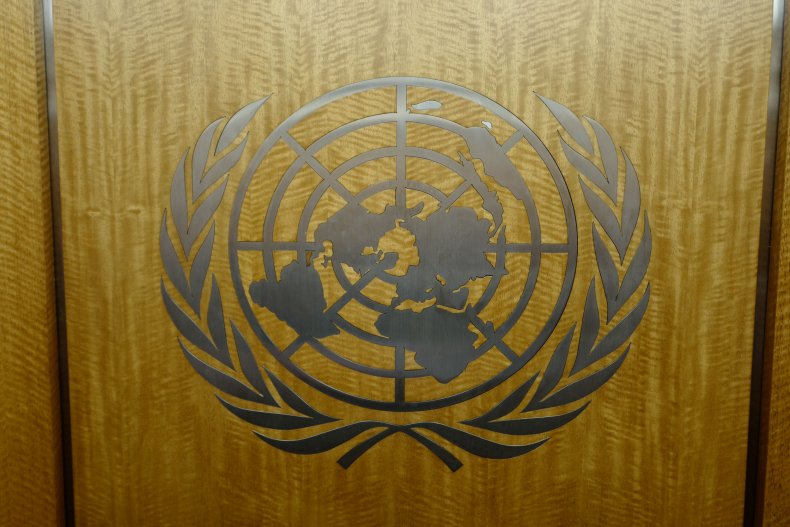Despite laudable efforts to contain and address damages from the pandemic in the areas of food security and nutrition, physical and mental health, and water and sanitation, the plan carries with it serious implications for state sovereignty related to unborn human life. Designed to focus on those countries with existing humanitarian crises as those most in need of coronavirus-related assistance, the U.N. plan will inevitably pose a serious threat to governments committed to protecting human life.
The plan allocates $120 million to the U.N. Population Fund (UNFPA), $450 million to the WHO and the remaining funds to other branches of the U.N. system. UNFPA is the “responsible entity” for coronavirus actions relating to pregnancy, including access to emergency obstetric care and maternal health services. It also is tasked with ensuring access to “sexual and reproductive health services,” which is U.N. parlance for abortion. According to UNFPA, “women’s and girls’ sexual and reproductive health choices and rights must be respected regardless of…COVID-19. This including access to contraception, emergency contraception, safe abortion where legal and to the full extent of the law, and post-abortion care.”
UNFPA references to abortion “where legal” do little to appease concerns that the agency will use pandemic-related funds to perform abortions when against the law. Ample evidence points to UNFPA’s circumvention of prohibitions on abortion via strategic partnerships with on-the-ground providers that perform abortions in countries that ban or restrict the practice. Although the nature of the partnerships is not specified in the plan, it notes that “most of the funding to U.N. agencies will be implemented through NGO partnerships.” The existence of longstanding UNFPA partnerships with International Planned Parenthood Federation and Marie Stopes International gives reason to fear that U.N. funds will be appropriated for abortions in countries where it is illegal. Moreover, the plan highlights UNFPA’s Minimum Initial Services Package—a set of actions for humanitarian emergencies that include abortion as a central component.
Countries identified as the foremost recipients of assistance from the plan include Afghanistan, Burkina Faso, Burundi, Cameroon, Central African Republic, Democratic Republic of the Congo, Egypt, Ethiopia, Haiti, Iraq, Libya, Mali, Myanmar, Niger, Nigeria, Lebanon, Rwanda, Somalia, South Sudan, Sudan, Syria, Ukraine, Venezuela and Yemen. These are countries where a traditionally pro-life culture continues to inform laws and policies that either completely protect unborn life or heavily restrict access to abortion. High levels of conflict and poverty render these governments particularly vulnerable to the strings that come attached to U.N. aid. Their need for assistance is likely to outweigh attempts to ward off the imposition of unwanted services, thus threatening the lives of the unborn and the rights of women and girls to authentic maternal health care.

In addition to UNFPA, the WHO has been one of the foremost promoters of abortion within the U.N. system. The agency has long identified abortion as core to “reproductive health” and a “human right,” although such a right exists nowhere in international law. In addition to investigating failures to coordinate a timely and appropriate response to the pandemic, it is in light of the agency’s radical pro-abortion stance that the U.S. government is evaluating WHO funding.
In many ways, the virus mimics the darkness that befell the world following the World Wars, prompting the creation of the U.N. One can say that this is precisely the kind of situation in which the value of the institution is indisputable—who will end wars, find cures, save children and provide food if not the U.N.? As the only international monolith of its kind, the U.N. is uniquely poised to respond to this crisis—which is precisely why, as thousands die at the hands of the virus, the killing of the innocent unborn with U.N. funds is exceptionally abhorrent.
The millions of dollars allocated for abortion-centric purposes reveals, more so than merely the problems with the U.N. system, the broader failings of the international human rights project as a whole. Abortion funding reveals that which political elites prioritize in a time of crisis—piecemeal “solutions” that rob the innocent of life and in no way fortify us with the physical and spiritual nourishment that we need to survive the pandemic.
Absent a renewed respect for the fundamental human rights enumerated in the aftermath of the World Wars, the U.N. will proceed with a ruthless “cultural imperialism” that displaces humanitarian assistance and imperils its very legitimacy in a time of great need. Now, more than ever, governments must stand at the ready to reject coercive pressures from the U.N., affirming their sovereign prerogative to protect life.
Elyssa Koren is the director of United Nations advocacy at ADF International.
The views expressed in this article are the writer’s own.
Source: newsweek.com